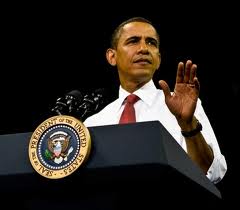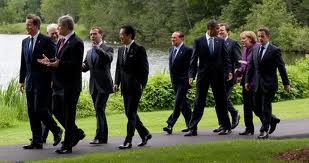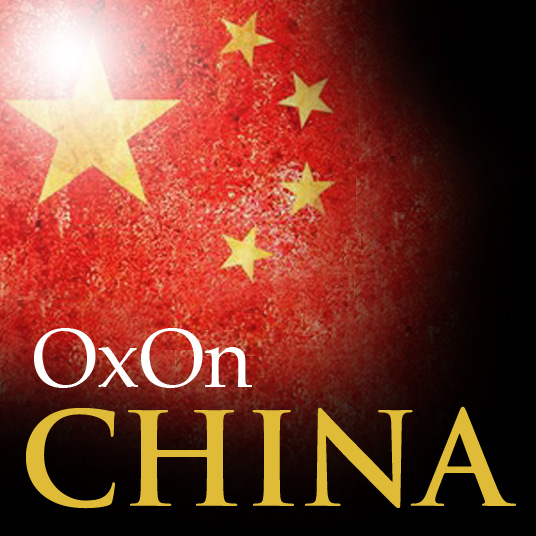
Munich’s legacy: historical analogy as a tool in marketing foreign policy
U.S. Secretary of State, John Kerry, made a reference, on two separate occasions, to the Munich Agreement of 1938 as he endeavoured to elicit support for President Barak Obama’s policy in Syria.
During a conference call with Democratic Party members of the House of Representatives on the 2nd of September, Kerry told them that they faced a “Munich moment” as they weighed whether to back President Obama’s call for a limited military strike against Syria.
Speaking in Paris on the 7th of September, during a press conference, Kerry described the situation in Syria as “our Munich moment.”
The Munich Agreement, and the policy of appeasement it represented, is one of the most widely used historical analogies by decision-makers and their advisers in shaping foreign policy, and in selling it to the wider public at home and abroad.
The logic of this comparison runs as follows: a dictator with aggressive intentions has to be stopped, as early as possible, the way the dictators of the 1930s were not. The policy of appeasement that was pursued by Britain and France in the 1930s in order to accommodate those dictators, particularly the German leader, Adolf Hitler, was a failure and millions of people paid with their lives for it.
Following World War II, Munich became a by-word for appeasement, which, in turn, became a by-word for surrender. Just by invoking the term “Munich” both the speaker and his audience knew what was meant by it. Few words in political parlance became so laden with historical connotations as this one did.

The historical roots of Obama’s foreign policy
A common Republican criticism of Barack Obama is that he has been a weak foreign policy president who has little regard for American ideals. Obama ‘has responded with weakness to some of the gravest threats to our national security this country has faced’, charged the 2012 Republican platform. Mitt Romney accused Obama of starting his presidency with ‘an apology tour’. Republican rising star Marco Rubio says Obama wants ‘to make America more like the rest of the world, instead of helping the world become more like America’.
Yet, an examination of the history of US foreign policy and the ideas which influenced it shows that far from being a radical departure from the American norm, Obama’s worldview fits with a historical tradition.
In fact, he sounds much like an early statesman.
Stefan Halper, professor of International Relations at Cambridge and a former adviser to several presidents, argues that US foreign relations have historically been influenced by what he terms ‘Big Ideas.’ Their starting point is the belief in American exceptionalism, the umbrella concept from which all other ideas flow – ranging from the early 19th century Monroe Doctrine to the Bush Doctrine and democracy promotion.

The G8 Leap of 2013: Needs to be higher, farther
The recently concluded G8 meeting at Lough Erne took an unprecedented leap by turning the focus on corporate governance. Among the greatest institutional challenges of our times, is the regulation of multinational corporations which operate across national borders and have the ability to shift labour and capital more than ever before. The G8 agenda focussed on open trade, fair taxes and increased transparency (the 3Ts agenda). Open trade- a part of all multilateral meetings saw the usual narrative of commitment to more trade with lesser transaction costs. However, the need for fair taxes and transparency of corporations took centre-stage for the first time.
The G8 expressed their commitment to establish automatic exchange of information between different national tax authorities and their support to the Organisation for Economic Cooperation and Development (OECD) to develop a multilateral system to implement it. The G8 also proposed a common template that will require MNCs to report profits made and taxes paid across the world. The rationale behind these initiatives is to prevent corporations to actively avoid tax through tax havens and shifting profits. There was also a mention of making relevant price information available across jurisdictions to implement international transfer pricing rules. OECD in the recent years has been working on multiple initiatives to counter the problem of base erosion and profit shifting (BEPS). The G20 also expressed support for OECD’s Global Forum on Transparency and Exchange of Information which has been tasked to create international standards of tax reporting in 2008 and 2012.

Democracy and Foreign Policy Persistence: Why Pakistan’s India strategy under Nawaz Sharif may not see a paradigm shift
Nawaz Sharif, the leader of the Pakistan Muslim League, is back in power. Sworn in as prime minister on June 5th, for the third time since 1990, he has been recognized over the course of his political career as a principal challenger to the military’s supremacy in governing Pakistan. Indeed Mr Sharif’s proactive pursuit of peace with India became the primary reason for his forcible ouster from power by the army in October 1999 and he was subsequently imprisoned and exiled for intruding into what the army considers its exclusive foreign policy domain. But the tide of history has now turned back in his favour and he promises a ‘new chapter’ in the country’s relationship with India. ‘We will start from where we were interrupted in 1999’, he declared as soon as the PML-N won the May 11th elections.
Since his dealings with India precipitated his ouster from power 14 years ago, there is now a heated debate over the prospects of a fast-paced rapprochement with its southern neighbour. Sharif has already pledged to take some bold initiatives: improving trade, energy and transportation links; expediting the Mumbai terror investigations; establishing a commission of enquiry on the Kargil conflict (which had subverted the peace process with India, especially the February 1999 Lahore Declaration); and reigning in non-state actors such as Lashkar-e-Tayba, accused of committing terrorism against India. Indian leadership (from the majority in Congress and the BJP opposition) have wholeheartedly welcomed Mr Sharif’s return to power and his overtures towards India. For now at least, there is visible public optimism in both countries that perhaps the two traditional foes are finally well on their way towards a sustainable course of mutual peace.

Debating China’s North Korea policy
Following North Korea’s third nuclear weapons test in February this year, much attention has been paid to debates within China over its troublesome neighbour, with some suggesting severing ties to the North altogether. Do these discussions reflect a fundamental shift underway in China’s North Korea policy? Not necessarily.

Divided we stand: using game theory to understand regional cooperation
Why do cooperative ventures between some countries work, and not others? Current literature identifies lack of common threats, base identities, and overlapping goals as dilemmas that make cooperation among certain sovereign states unlikely. Indeed, if cooperative ventures are viewed from a Darwin-Waltz perspective,[1] weak institutions, norms, and domestic regimes explain the difficulties countries face in collaborating. Adding to these traditional explanations, in this post I want to use game theory to introduce the concept of a ‘supervising agent’ to identify why regional integration may be unsustainable in the long run.

Bernard-Henri Levy on Humanitarian Intervention
One of the leaders of the ‘Nouveaux Philosophes’ movement in 1976, Levy has made contributions to many areas of philosophy. However, he has recently gained notoriety for his prominent and influential opinions regarding humanitarian intervention. As a man with a penchant for war zone tourism, Levy has trotted the glob in response to each new outbreak of conflict; ostensibly in order to attract public attention to the issue (and, arguably, to himself); each time proclaiming his solution to the crisis within a few weeks of arrival. That solution is frequently very similar – the West must intervene.

The International “Campaign to Stop Killer Robots”: A misguided effort?
Last month, the international “Campaign to Stop Killer Robots” was officially launched in London. The Initiative, backed by groups from ten countries and several international NGOs aims at pre-emptively banning autonomous robots, most importantly autonomous unmanned aerial vehicles (UAVs or “drones”). In the press statement, the initiators claim that “[u]rgent action is needed to pre-emptively ban lethal robot weapons that would be able to select and attack targets without any human intervention”. They call for “an international treaty […] national laws and other measures.” Nobel Peace Laureate Jody Williams argues that “[a]llowing life or death decisions on the battlefield to be made by machines crosses a fundamental moral line and represents an unacceptable application of technology.”









